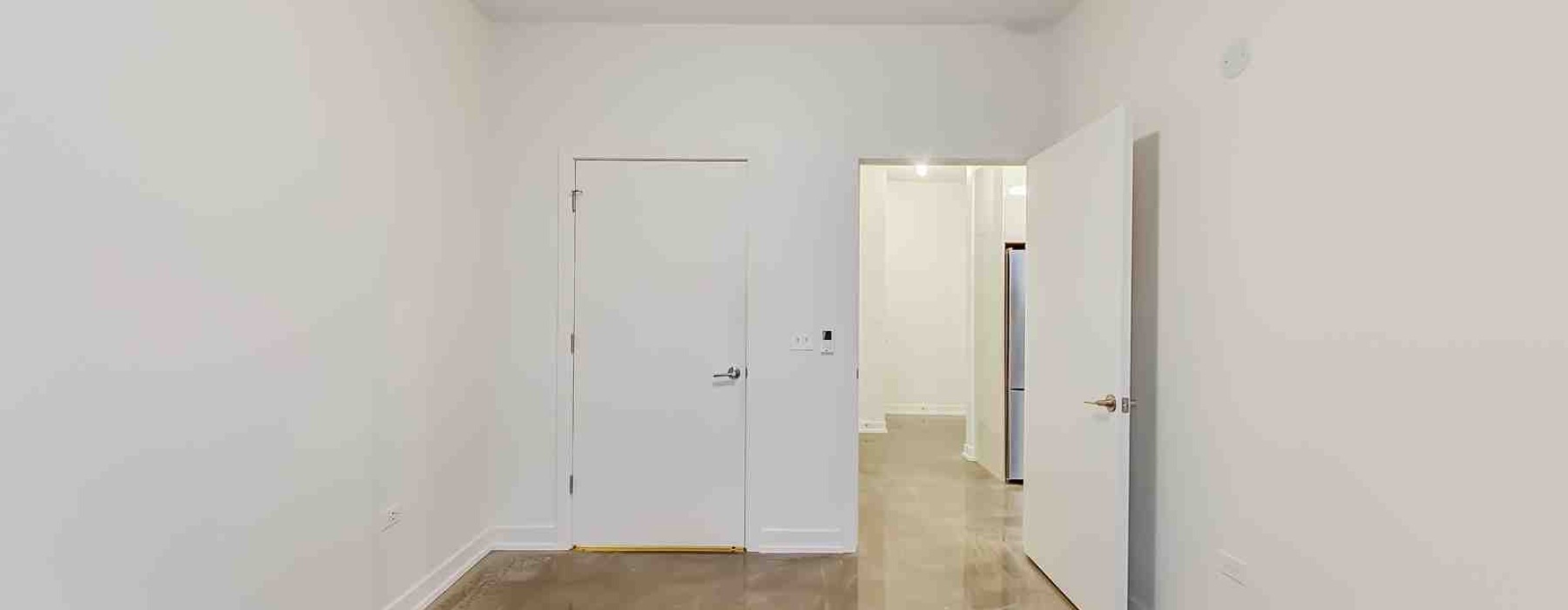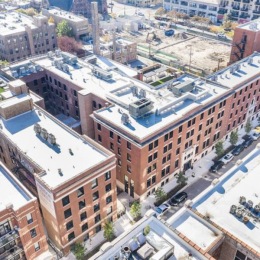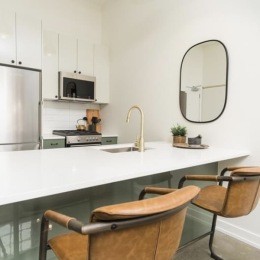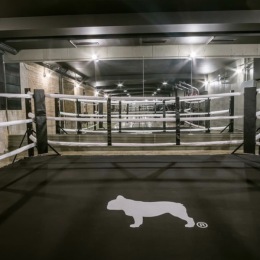Understanding Your Chicago Apartment Lease Agreement
A Chicago apartment lease agreement is a legally binding contract between landlord and tenant that outlines the terms and conditions for renting residential property in Chicago. If you're searching for quick information about Chicago lease agreements, here's what you need to know:
- Key Required Components: Property description, lease term, rent amount, security deposit details, maintenance responsibilities, and signatures
- Governing Law: Chicago Residential Landlord and Tenant Ordinance (RLTO) for most properties
- Required Attachments: RLTO summary, security deposit interest rate disclosure, bed bug prevention brochure, and other property-specific disclosures
- Exemptions: Owner-occupied buildings with six units or fewer are typically exempt from the RLTO
Signing a lease in Chicago means navigating a document that's heavily regulated by local ordinances designed to protect both tenants and landlords. The Chicago Residential Landlord and Tenant Ordinance (RLTO), which covers approximately 77% of all rental units in the city, establishes specific requirements that make Chicago leases different from those in other cities.
Whether you're a first-time renter or a seasoned tenant, understanding the details of your lease agreement is crucial to protecting your rights and ensuring a smooth rental experience. A properly executed Chicago lease will clearly define expectations around move-in dates, monthly rent, security deposits, maintenance responsibilities, and procedures for addressing issues that may arise during your tenancy.
The RLTO requires landlords to provide specific disclosures and documents along with your lease agreement. These include a summary of the ordinance itself, security deposit interest information, and various property-specific disclosures depending on factors like the building's age and location.
Not all rental properties are subject to the same rules. Owner-occupied buildings with six units or fewer, dormitories, hotels/motels (unless stayed in for more than 32 days), and certain other categories are exempt from the RLTO, though they remain subject to Illinois state landlord-tenant laws.

RLTO & Other Laws Every Renter Should Know
When you're renting in Chicago, the Residential Landlord and Tenant Ordinance (RLTO) becomes your best friend. This powerful piece of legislation has been protecting Chicago renters since 1986, with regular updates to keep pace with changing needs (including recent amendments effective May 1, 2024).
Think of the RLTO as your rental rights roadmap. It carefully outlines what landlords must do, what tenants are responsible for, and what happens when either party doesn't hold up their end of the bargain. The ordinance covers critical aspects of your rental experience including security deposit handling, essential services requirements, maintenance responsibilities, landlord access rules, and protection against retaliation.
Beyond the RLTO, Chicago's Fair Notice Ordinance gives you breathing room when facing lease terminations. The longer you've lived in your apartment, the more notice you're entitled to receive before being asked to move. And don't forget the Illinois Landlord-Tenant Act, which provides state-level protections and will soon include new flood disclosure requirements starting January 1, 2025.
These laws create a balanced relationship between you and your landlord. If your apartment lacks heat in January or the ceiling starts leaking, the RLTO gives you specific remedies. You might be able to withhold rent, make repairs yourself and deduct the cost, or even terminate your lease in serious cases.
For the complete details of your rights and responsibilities, you can review the Complete RLTO Ordinance In Chicago.
Who's Covered, Who's Not
Not every rental in Chicago falls under the RLTO's protective umbrella. Understanding whether your apartment is covered makes all the difference in knowing your rights.
The RLTO typically covers most traditional rental situations including apartment buildings, rented condos, and single-family homes that aren't owner-occupied.
However, several common housing types fall outside the RLTO's protection. If you live in an owner-occupied building with six or fewer units, you're not covered. The same goes for college dormitories, hotels (unless you're staying longer than 32 days), shelters, and non-residential properties. Employer-provided housing and owner-occupied co-ops also miss out on RLTO protections.
Don't worry if your rental falls into one of these exempt categories—you're still protected by Illinois state law and the specific terms in your lease agreement. You'll just miss some of the additional safeguards the RLTO provides.
Here at The Duncan Apartments by Flats®, we're proud that our West Loop luxury apartments are fully covered by the RLTO, ensuring you receive complete protection under this important ordinance.
Mandatory Attachments Under the RLTO
One unique aspect of a Chicago apartment lease agreement is the collection of required paperwork that must accompany it. These aren't just optional extras—they're legally mandated documents that your landlord must provide:
Your lease package should include an RLTO Summary in either English or Spanish (your choice), explaining your basic rights in clear language. You'll also receive a Security Deposit Interest Rate Sheet showing the current city-mandated interest rate (0.1% for 2025).
Health and safety information is covered through the Bed Bug Prevention Brochure and, for buildings constructed before 1978, a Lead-Based Paint Disclosure. If you're paying for heat, expect a Heating Cost Disclosure estimating your expenses. You should also receive a Recycling Rules Flyer explaining Chicago's recycling program.
Starting January 1, 2025, landlords must also provide a Floodplain Notice disclosing whether the property sits in a floodplain and documenting any flooding incidents over the past decade. Some units may also require a Radon Disclosure depending on their location and construction.
If your landlord fails to provide these required documents, it's more than just an administrative oversight—it could give you legal grounds to terminate your lease or seek damages. Before signing your Chicago apartment lease agreement, make sure your paperwork is complete.
Key Clauses in a Chicago Apartment Lease Agreement
A standard Chicago apartment lease agreement contains several essential sections that define your rights and obligations as a tenant. Understanding these key clauses will help you avoid surprises and ensure you're making an informed decision before signing.
Standard Sections Every Chicago Apartment Lease Agreement Must Contain
Identification of Parties and Premises
- Names and contact information for all tenants and the landlord
- Exact address and unit number
- Description of included parking or storage spaces
Lease Term
- Start and end dates
- Provisions for renewal or conversion to month-to-month
- Standard terms are typically 12 months, though 6-month and month-to-month options exist
Rent and Payment Terms
- Monthly rent amount
- Due date (typically the 1st of each month)
- Acceptable payment methods
- Late fees (capped at $10 for the first $500 of rent plus 5% of any amount over $500)
Security Deposit Provisions
- Deposit amount
- Return timeline (45 days after move-out)
- Interest requirements
- Allowable deductions
Maintenance Responsibilities
- Landlord's repair obligations
- Tenant's upkeep duties
- Procedure for requesting repairs
Landlord Access
- 48-hour notice requirement for non-emergency entry
- Emergency access provisions
Use Restrictions
- Occupancy limits
- Rules regarding noise, alterations, and common areas
- Pet policies
Default and Remedies
- Consequences for lease violations
- Cure periods (typically 5 days for non-payment, 10 days for other breaches)
- Eviction procedures
Subletting and Assignment
- Whether subletting is permitted
- Approval process
- Continuing liability
Attorney's Fees
- Who pays legal costs in case of disputes
- RLTO often allows prevailing party to recover reasonable attorney's fees
For a comprehensive understanding of your rights under the RLTO, review the Chicago Residential Landlord Tenant Ordinance Summary that should be attached to your lease.
Required Disclosures with Your Chicago Apartment Lease Agreement
Beyond the standard lease clauses, your Chicago apartment lease agreement must include several specific disclosures:
Code Violations
- Any building code violations from the past 12 months
- Pending housing court cases or administrative hearings
Flood History Disclosure
- Starting January 1, 2025, landlords must disclose if the property is in a FEMA-designated floodplain
- How many times the unit has flooded in the past 10 years
- Lower-level units have additional disclosure requirements
Lead-Based Paint Disclosure
- Required for buildings constructed before 1978
- Must include EPA-approved information pamphlet
- Statement of landlord's knowledge of lead-based paint in the unit
Radon Disclosure
- Information about potential radon hazards
- Any known testing results
Bed Bug Prevention
- Educational materials on preventing infestations
- Procedures for reporting suspected bed bugs
Move-In/Move-Out Inspection Checklist
- Documents the condition of the apartment at move-in
- Protects both parties during security deposit settlement
Utility Responsibility
- Clear statement of which utilities are tenant's responsibility
- Any shared utility arrangements
These disclosures serve to inform you about potential health or safety concerns and clarify responsibilities between you and your landlord. At The Duncan Apartments by Flats®, we ensure all required disclosures are provided with every lease to maintain full transparency with our residents.
Financial Rules: Rent, Deposits & Fees
When you sign a Chicago apartment lease agreement, the financial details matter just as much as the living space itself. Chicago has specific rules about money matters that protect both you and your landlord from misunderstandings and disputes.
Security deposits are a major focus of Chicago's tenant protections. Your landlord must return your deposit within 45 days after you move out – not a day later. For 2025, they must pay you 0.1% interest on deposits held longer than 6 months (yes, it's small, but it's required by law). Your deposit can't just sit in your landlord's general account; it must be held in a separate, Illinois-based bank account specifically for security deposits.
If your landlord keeps any portion of your deposit for damages, they must provide an itemized list explaining every deduction within 30 days of your move-out. This transparency ensures you know exactly what you're being charged for.
Rent payments typically follow a standard structure in Chicago leases. Most are due on the 1st of each month, with a grace period before late fees kick in. Your lease should clearly spell out acceptable payment methods – whether checks, electronic transfers, or payment portals.
Late fees in Chicago have strict caps: $10 for the first $500 of rent plus 5% of any amount over $500. For example, if your rent is $1,500, the maximum late fee would be $10 + 5% of $1,000 = $60. Any lease trying to charge more than this is overstepping legal boundaries.
For current security deposit interest rates and regulations, check the official Security Deposit Interest Rate Summary from the City of Chicago.
Security Deposits vs. Non-Refundable Fees
Many Chicago landlords have shifted from security deposits to non-refundable fees in recent years. Understanding the difference is crucial for your wallet:
| Security Deposits | Non-Refundable Fees |
|---|---|
| Must be returned within 45 days | Never returned |
| Interest must be paid (0.1% for 2025) | No interest requirements |
| Receipt must be provided | No receipt requirements under RLTO |
| Can only be used for unpaid rent or damages | No restrictions on use |
| Itemized deductions required | No itemization needed |
| Subject to double damages for violations | Not subject to same penalties |
If your landlord collects a security deposit, they must give you a receipt showing the owner's name, your unit address, the deposit amount, and the financial institution where it's held. The stakes are high for landlords who don't follow these rules – violations can result in penalties of twice the security deposit amount plus attorney's fees.
Paying Rent the Smart Way
Being strategic about rent payments helps avoid headaches and unnecessary fees. First, know your grace period – most leases allow a few days after the due date before penalties apply.
Electronic payments create automatic paper trails and are generally more convenient for both parties. At The Duncan, we offer user-friendly electronic payment options that make keeping track of your rent history simple.
Understand payment application – some leases specify that your payment goes toward fees and other charges before rent. This can create a cycle of late fees if you're not careful, as your rent may still show as partially unpaid.
Keep detailed records of every payment you make. Save those confirmation emails, take screenshots of completed transactions, or get receipts for cash payments. Having this documentation can save you from disputes down the road.
Always get receipts for cash payments. A proper receipt should include the date, amount, and purpose of your payment. Without this proof, it's your word against the landlord's if questions arise later.
At The Duncan Apartments by Flats®, we believe in transparency about all financial aspects of your lease. We provide clear information about payment terms and offer multiple convenient payment options. Want to learn more about what makes living at The Duncan special? Visit our amenities page to see all the perks of calling our West Loop community home.
Tenant & Landlord Rights, Remedies, and Best Practices
Renting in Chicago comes with a clear set of rights and responsibilities for both parties. Understanding these can help you steer any challenges that arise during your lease term while maintaining a positive landlord-tenant relationship.
The RLTO establishes a framework that balances protection for tenants with fair treatment for property owners. As a tenant, you're entitled to a habitable living space with functioning essential services. Your landlord must maintain the property according to building codes, provide heat, water, and electricity, make timely repairs, respect your privacy with proper notice before entering, and handle security deposits according to strict guidelines.
In return, your responsibilities include paying rent on time, keeping your apartment clean, using appliances and facilities properly, allowing reasonable access with proper notice, and following the terms outlined in your Chicago apartment lease agreement.
When problems arise, Chicago law provides specific remedies based on the severity of the issue. For essential services like heat or water, the process moves quickly:
- Provide written notice to your landlord about the problem
- If the issue isn't resolved within 24 hours, you can withhold a reasonable portion of rent, arrange for necessary services yourself and deduct the cost, seek damages for reduced property value, or even terminate your lease if the problem continues for 72 hours
For non-essential repairs, the timeline extends to 14 days after written notice before you can exercise options like repair-and-deduct. This gives your landlord a reasonable opportunity to address the issue while still protecting your right to a properly maintained home.
Remedies if the Landlord Breaches
When your landlord fails to uphold their end of your Chicago apartment lease agreement or violates the RLTO, you have several powerful tools at your disposal:
For essential service failures like no heat in winter or no running water, the law moves quickly to protect you. After providing written notice, you only need to wait 24 hours before taking action. You can withhold a portion of your rent that reflects the reduced value of your apartment, arrange for the services yourself and deduct the cost from next month's rent, or seek damages through legal channels. If the problem continues for 72 hours, you can even terminate your lease without penalty.
For minor issues like a dripping faucet or broken cabinet, the process gives your landlord more time to respond. After sending written notice, you'll wait 14 days before making repairs yourself. You can then deduct up to $500 or half a month's rent (whichever is less) from your next payment, making sure to provide receipts for the work.
Security deposit violations are taken especially seriously in Chicago. If your landlord mishandles your deposit by not returning it within 45 days or failing to provide interest, you may be entitled to double the deposit amount plus interest and attorney's fees.
The RLTO also protects you from illegal lockouts and utility shutoffs, which are considered criminal offenses in Chicago. If you experience either, contact the police immediately and know that you can sue for significant damages – either two months' rent or twice your actual damages, whichever is greater.
Perhaps most importantly, Chicago law shields you from retaliation. If your landlord takes negative action against you within a year of you exercising your legal rights (like complaining about code violations), the law presumes it's retaliatory, giving you grounds for lease termination and damages.
Remedies if the Tenant Breaches
Landlords also have specific remedies when tenants don't fulfill their obligations:
For non-payment of rent, the process begins with a 5-day notice to "pay or quit." This gives you five days to catch up on missed payments before your landlord can file for eviction. If you don't pay within this window, they can proceed with eviction and seek judgment for unpaid rent plus legal costs.
Other lease violations – like unauthorized pets or excessive noise – trigger a 10-day notice to cure the violation. This gives you ten days to correct the issue before facing potential eviction. If you remedy the problem within this period, the notice becomes void.
If you abandon your apartment before your lease ends, your landlord must make reasonable efforts to re-rent the unit, but you remain responsible for rent until either the lease expires or a new tenant takes over. Your security deposit may be applied toward unpaid rent and any damages beyond normal wear and tear.
Staying beyond your lease end (called "holding over") can be costly. You may be liable for double rent during this period, and your landlord can either accept regular rent payments to create a month-to-month tenancy or proceed with eviction.
At The Duncan Apartments by Flats®, we believe the best remedy is prevention. We pride ourselves on responsive maintenance, clear communication, and building positive relationships with our residents. When everyone understands their rights and responsibilities from the start, it creates a more harmonious living experience for all.
Signing, Renewing, Subletting & Staying Compliant
The journey with your Chicago apartment lease agreement doesn't end after the initial signing. Understanding how to properly manage your lease throughout your tenancy is just as important as the terms within it.
When signing a new lease at a West Loop apartment like The Duncan, take time to thoroughly read every page—including those seemingly tedious attachments and disclosures. They contain critical information about your rights and responsibilities. Document your apartment's condition immediately upon move-in with detailed notes and photos. This simple step can save you headaches (and potentially your security deposit) when you eventually move out.
Digital leases have become increasingly common in Chicago's rental market. While convenient, make sure you receive and securely store copies of all electronically signed documents. Create backups and keep them somewhere you can easily access if questions arise during your tenancy.
Chicago's Fair Notice Ordinance provides important protections when it comes to lease renewals. Your landlord must provide advance written notice before terminating or not renewing your lease, with the timeline based on your length of residency:
- 30 days' notice for tenants of less than 6 months
- 60 days' notice for tenants of 6 months to 3 years
- 120 days' notice for tenants of more than 3 years
If your landlord accepts rent after your lease expires without a new agreement in place, your tenancy automatically converts to a month-to-month arrangement under the same terms as your original lease. This provides flexibility but also means either party can end the arrangement with proper notice.
How to Sublet or Assign Your Chicago Apartment Lease Agreement
Life happens, and sometimes you need to move before your lease ends. In these situations, subletting might be your best option—but proceed carefully.
First, check your lease terms. Most Chicago apartment lease agreements require landlord consent before subletting, and some prohibit it entirely. Submit a formal written request to your landlord with details about your proposed subtenant, giving them adequate time to conduct screening.
With subletting, you remain the responsible party on the original lease. If your subtenant damages the property or stops paying rent, your landlord will look to you for remedy. Consider creating a detailed sublease agreement that mirrors your original lease terms and clearly outlines expectations.
When handling security deposits with a subtenant, proceed with caution. You might collect a deposit from them directly, but understand that you're still responsible for the condition of the apartment when it comes to getting your original deposit back from the landlord.
An assignment, while less common, transfers all rights and responsibilities to a new tenant—but still requires landlord approval in most cases.
Lease Renewal & Termination Checklist
Whether you're extending your stay in your West Loop apartment or preparing to move elsewhere, following proper procedures ensures a smooth transition.
When renewing, carefully review any proposed changes to your lease terms. Don't hesitate to discuss modifications with your property manager before signing. Ensure all required attachments are provided with the renewal, and get everything in writing with signatures from all parties.
If you're moving out, provide written notice according to your lease requirements—typically 30-60 days in advance. Schedule a pre-move-out inspection with your landlord to identify any potential issues you might need to address. Then thoroughly clean your apartment and make minor repairs to maximize your security deposit return.
Document the final condition with photos or video, return all keys (and get a receipt), and provide a forwarding address for your security deposit. Attending the final walkthrough in person can help resolve any disagreements about the unit's condition on the spot.
At The Duncan Apartments by Flats®, we've streamlined these processes to make staying in your West Loop home as hassle-free as possible. Our renewal process is transparent, with clear communication about any changes to terms or rent amounts. We understand that whether you're staying or going, clear communication makes all the difference.
Frequently Asked Questions about Chicago Apartment Lease Agreements
What late fees are legal in Chicago?
Late fees in Chicago aren't just a landlord preference—they're strictly regulated by law. Under the RLTO, landlords can charge no more than $10 per month for rent amounts under $500, plus 5% on any portion exceeding $500.
For example, if you're renting at The Duncan and your monthly payment is $1,500, the maximum late fee would be $60 ($10 base fee plus 5% of the remaining $1,000). These fees can't kick in during any grace period specified in your lease, which typically gives you about 5 days after the due date.
The good news? Your landlord can't surprise you with these charges—late fees must be clearly outlined in your written lease agreement to be enforceable. If they're not in writing, you're not obligated to pay them.
How soon must my security deposit be returned?
When you move out of your Chicago apartment, the clock starts ticking on your security deposit return. Landlords must return your deposit within 45 days after you vacate the unit—this isn't just a courtesy, it's the law.
If your landlord plans to keep any portion of your deposit for damages or unpaid rent, they need to provide you with an itemized statement explaining exactly what they're deducting and why within 30 days of your move-out date.
In cases where you have to leave due to fire or other casualties (like serious flooding), landlords must act even faster—returning your deposit within just 7 days.
Don't forget about interest! For deposits held longer than 6 months, landlords must pay interest at the rate set by the City Comptroller (0.1% for 2025). If your landlord misses these deadlines or fails to pay interest, you could be entitled to recover up to twice your deposit amount plus attorney's fees.
Can my landlord enter without notice?
Your Chicago apartment is your private home, and the RLTO protects that privacy. Landlords must provide at least 48 hours' advance notice before entering your apartment for routine matters like inspections, repairs, or showing the unit to prospective tenants. This notice should come in writing, by mail, telephone, written notice at your door, or another reasonable method that ensures you're actually informed.
The only exception is for genuine emergencies—situations that threaten safety or could cause significant property damage. In these rare cases, immediate entry without notice is permitted.
If you find your landlord repeatedly entering without proper notice or at unreasonable hours, this could constitute harassment under the law. You have the right to send a formal written notice demanding they comply with the RLTO's access provisions. Continued violations might even justify legal action or give you grounds to terminate your lease.
At The Duncan Apartments by Flats®, we value your privacy and personal space. We always provide proper notice for any planned visits to your home and only enter without notice in true emergencies that can't wait.
Conclusion
Navigating a Chicago apartment lease agreement doesn't have to be overwhelming when you understand what's involved. Taking the time to familiarize yourself with Chicago's rental ordinances will empower you to protect your rights while fulfilling your responsibilities as a tenant.
As you move forward with your apartment search or lease renewal, keep these essential points in mind:
Always check whether your rental falls under RLTO protection. This single detail determines many of your rights as a tenant in Chicago.
Make sure your lease package includes all required attachments and disclosures – from the RLTO summary to bed bug prevention information. Missing documents could signal potential issues with landlord compliance.
Understand your specific rights regarding security deposits, including the 45-day return timeline and interest requirements. These financial protections are some of the strongest aspects of Chicago's tenant laws.
Know the proper channels for requesting repairs and addressing issues during your tenancy. The RLTO provides specific remedies when problems arise, but following the correct procedures is crucial.
Follow appropriate protocols whether you're renewing, terminating, or subletting your apartment. Each situation has its own requirements to protect both you and the property owner.
At The Duncan Apartments by Flats®, we believe your lease should provide peace of mind, not stress. Our West Loop apartments offer more than just beautiful living spaces with indoor pools and stunning rooftop views – we deliver a transparent, straightforward leasing experience backed by professional management that respects your rights as a resident.
We recognize that your lease forms the foundation of your home experience. That's why we ensure our agreements are clear, fair, and fully compliant with all Chicago ordinances. We want you to feel confident from the moment you sign until the day you decide to renew.
For answers to additional questions about our lease agreements or to learn more about making The Duncan your next home, visit our FAQs page or reach out to our friendly leasing team.
Understanding your lease thoroughly before signing sets the stage for a positive rental experience in one of Chicago's most vibrant neighborhoods. When you know your rights and responsibilities, you can focus on what really matters – enjoying everything the West Loop and your new home at The Duncan have to offer.








